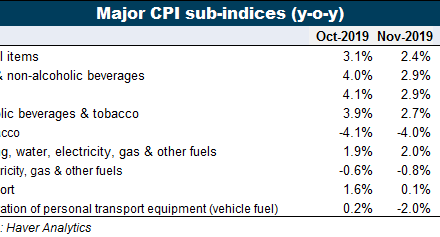
Effective ethical leadership

By Inyemba Kamwi
Managing Partner at Alketas Consultancy.
There is a popular saying that goes as follows: “monkey see, monkey do”. As controversial as the statement may be, it so happens that monkeys follow the behaviour that they see. Likewise children also imitate their parents, subordinates their superiors and so forth. It is therefore safer to say that the behaviour of leaders has a great impact on their followers.
Several evidence suggests that ethical leadership can have relevant positive effects on both individual and organizational effectiveness. Unfortunately, non-ethical behaviour breads a negative impact. Ethical leadership is defined as the “the demonstration of normatively appropriate conduct through personal actions and interpersonal relationships, and the promotion of such conduct to followers through two-way communication, reinforcement and decision-making” (Rubin et al 2010).
The definition of Ethical leadership I prefer to use is one uttered by Apple’s CEO, Tim Cook where he described ethical leadership as “making things better than you found them”. Indeed, a leader coming into an organisation seats in a powerful position to either improve the organisation, leave things the way they are or to leave things worse than before! That being said, a leader therefore will have to adopt a relevant leadership style that will enable him to catapult improvement in the company.
Perhaps an element of ethical leadership that is often ignored is the fact that, it is so effective that it often leads to financial and strategic success for organisations in which it is adopted in. We have seen big corporations being ordered by courts to pay millions of dollars as a result of their unethical operations.
A good example is that the Oil giant Shell, that had to pay US$83 million in settlement towards affected communities of the infamous oil spill scandal of 2008 in Nigeria. This of course was a huge financial loss and also led to a dice and thereby dented the corporation’s reputation. It is clear that leaders play a very vital role when matters of ethics are concerned.
Leaders should be exemplary, they should also bolster value based relationships by recognizing and encouraging behaviours tht uphold their organisation’s values. It is of paramount importance that leaders invest their time in learning to communicate and publicise their values even beyond the Organisations.
As I have stated earlier on in this document, Leaders have a direct impact on their followers, therefore a leader should communicate the “right message” regarding ethic, research indicates that leader moral reasoning can influence individual moral reasoning in work groups because “monkey see, monkey do”.
Followers are likely to emulate the behaviour of inspirational leaders, therefore if the Leader is a good exemplary ethical leader, all those followers that aspire to be like the leader (role model scenario) will follow suit in the footsteps of good behavioural ethics. Therefore Ethical Leadership is associated with counterproductive behaviour and good quality work output.
Impounding on that, I also discovered that a leader is help accountable for the output of an organisation because it is the kind of energy that the leader expels which is easily adopted by those in the various production departments.
Where there is a good social relationship between Leaders and Followers, followers will feel compelled to be loyal and not just as an obligation towards the leader. In such relationships, followers are likely to be more loyal to both leader and the organisation. Leaders with good relations are transformational leaders and they aim to be more inspiring by leading as an example. Employees who feel a sense of belonging to an organisation are likely to defend the organisation instead of acting in an unethical manner.
In every organisation there is a very great need for a leader and follower engagement, for example organisations can hold employee engagements committees and sessions whereby matters of ethics are discussed, encouraging employees to openly discuss their views, opinions and experiences on the subject. A free work environment is regarded as the most beneficial work environment in the sense that there is a very clear way of communication between leaders and their followers or subordinates and if there is a need for anything to be relayed, it is as easy as they are very clear channels of communications.
Learning can also be induced and incorporated within company strategies. It will therefore be easier for an organisation to determine whether the policies that they previously implemented are working at all or they are not. In other words, company strategies incorporated with learning sessions can be used as a standard measure for whether a company is making progress in implementing their policies at all or it is not.
In my own opinion, leaders should often refer to the Code of Conduct as stipulated by their Organisations in order to avoid ethical dilemmas. Additionally, leaders should aim to be exemplary leaders not only within their organisations, but beyond. Let me conclude this article, in the words of American author, Harvey Mackay “You can’t buy a good reputation, you must earn it”.












































